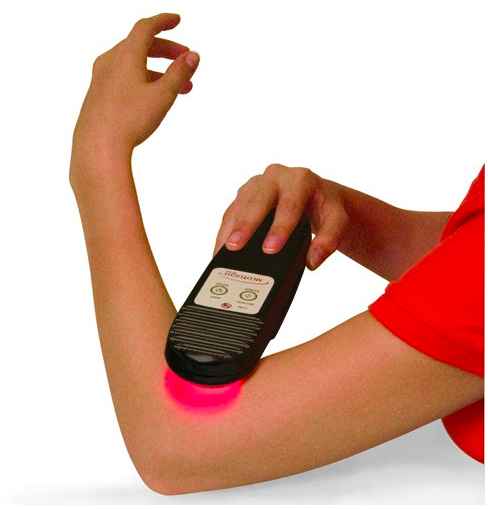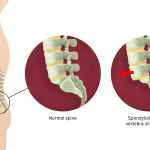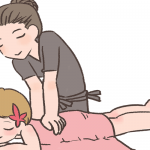Peripheral neuropathy is a result of damage to your peripheral nerves, often leads to weakness, numbness, and pain, commonly in your hands and feet. It can also affect other parts of your body.
Your peripheral nervous system sends information from your brain and spinal cord to the rest of your body. Peripheral neuropathy can be the effect of traumatic injuries, infections, metabolic problems, inherited causes and exposure to pollutants. Diabetes mellitus is one of the most usual causes. The pain in peripheral neuropathy is described as the feeling of burning, stabbing and tickly. In most cases, medications can reduce the pain of peripheral neuropathy.
Each nerve in your peripheral system is important and has its vital function, therefore symptoms and intensity of pain depend on the type of nerves damaged.
Nerves are classified into
- Sensory nerves carry sensory information like pain, heat, and touch, thru the skin and then delivered to the brain.
- Motor nerves control muscle movement
- Autonomic nerves are responsible for blood pressure, heart rate, and other internal functions.
Signs and symptoms of peripheral neuropathy might include the following
- Numbness in your feet and hands that can extend up to your arms and legs
- Burning sensation around the affected area
- Sharp Pain
- Loss of muscle harmony
- Muscle paralysis
Peripheral neuropathy can affect one to multiple nerves at the same time. Pain experienced by the person depends on the level of nerve damage
Check yourself with specialist
Don’t wait for more serious illness to be brought up by a simple pain. Consult your doctor immediately when you experience infrequent kind of pain in your feet and hands. Prevention is very significant to stop further nerve damage and avoid the need for the more serious and expensive treatment.
Causes
Many bad habits can contribute to nerve damage. Your present sickness can also lead to further complications like nerve malfunction.
Alcohol Dependence. It is proven that unhealthy drinking of alcoholic beverages can lead to multiple organ damage like your liver, kidneys, and pancreas. When your main body parts are damaged it can lead to improper function of the nerves.
Autoimmune diseases. An autoimmune disease is a condition arising from an abnormal immune response to a normal body part. Some of these diseases include lupus, inflammatory bowel disease, and diabetes mellitus.
Diabetes. Neuropathic disease is common to diabetic patients
Medications. Intensive treatments and drugs like those used for chemotherapy are fighting the good cells damaging the good ones at the same time. This can lead to serious nerve damage
Infections. These include certain viral or bacterial infections, such as hepatitis C, leprosy, diphtheria and HIV.
Nerve trauma. Traumas, such as vehicular accidents, sports injuries, can damage peripheral nerves.
Vitamin deficiencies. Vitamin B complex and Vitamin E are important to nerves.
Other diseases. These may include but is not limited to kidney disease, liver disease, connective tissue disorders, and hypothyroidism.
Effects of peripheral neuropathy
Burns and skin trauma. Person will start being insensitive to change in temperature and also in pain. Recurring numbness is also experienced.
Infection. Loosing nerve sensation can lead to intensive insensitivity pain. When you can no longer feel the ache it is so easy to get open wounds without knowing. This is worrying especially for diabetic patients because they can get their cuts easily infected. We know that it is hard or nearly impossible to heal wounds if you have diabetes.
Frequent falling. Lack of balance due to loss of sensation can lead to numerous falling.
Prevention
The best way to prevent peripheral neuropathy is to manage medical conditions that put you at risks, such as diabetes, alcohol dependence or rheumatoid arthritis.
Fruits and Vegetables is your key to starting and having good eating habits. Look for foods which are high in nutrients and vitamins especially with vitamin B1, B6, and B12. These vitamins are essential to fight nerve aging as well as total nerve damage.
Regular exercise. Look for the kind of exercise to be included in your routine. Consult your doctor first before deciding to follow a certain program. Some programs that work for others may not work for you. Different body types with different conditions have different needs.
Avoid factors that may cause nerve damage, including tiresome motions, cramping positions, smoking and alcohol independence. You should be responsible for knowing what can hurt you so you can avoid doing them.
Infrared Light Therapy System is scientifically proven to relieve pain, reduce muscle tension and spasms, increase tissue oxygenation, and improve blood circulation. Many brands are safe and simple to operate, in seconds you’ll be enjoying a deep and soothing relaxation. Machines of these kinds underwent a lot of studies to prove that they can help neuropathic people improve their condition and lessen the possibility of having a worse ailment. You can check this link to buy it at Halo Health.







